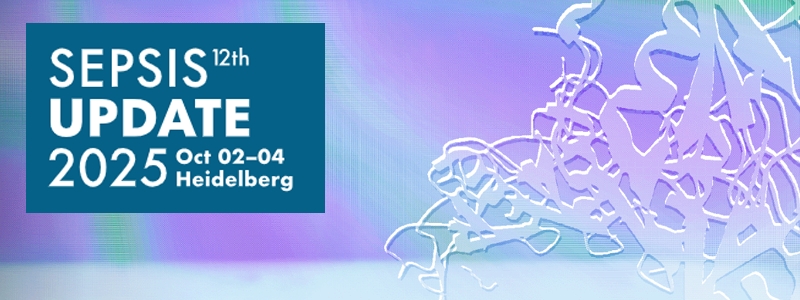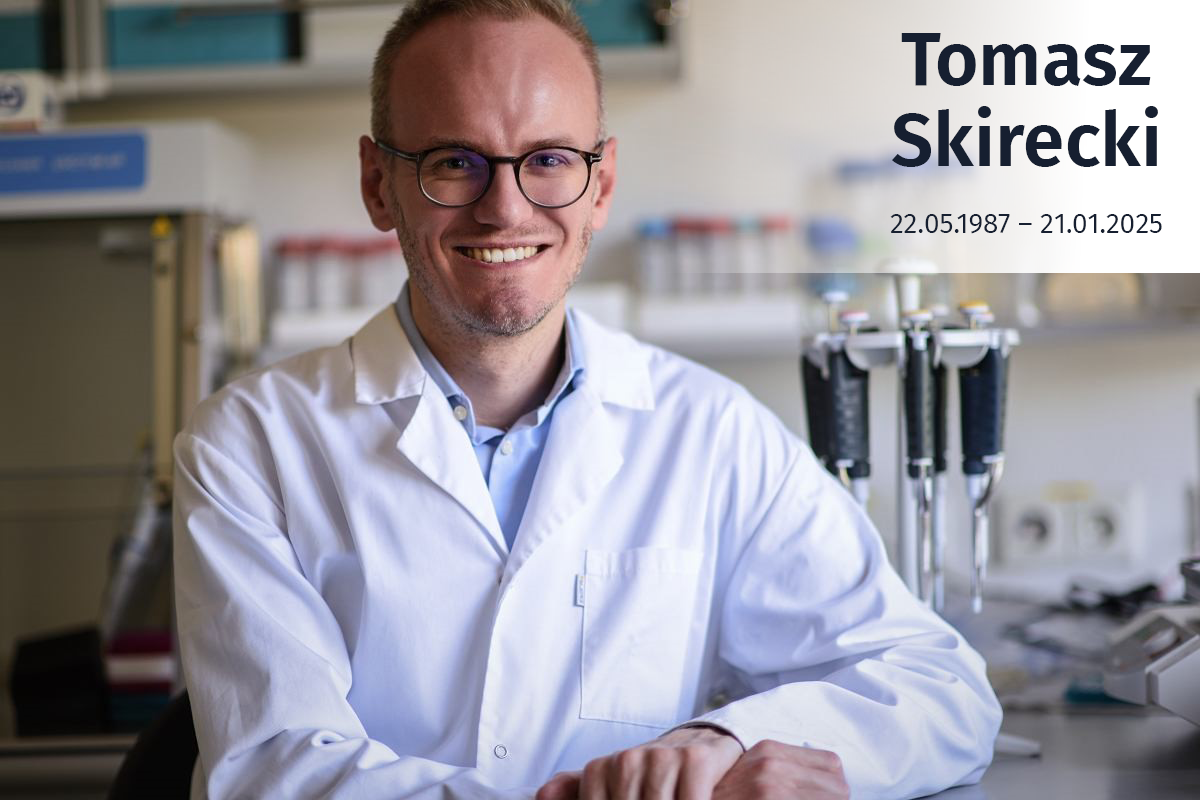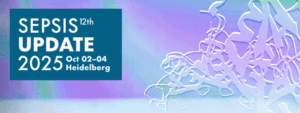-
The immunology of sepsis: translating new insights into clinical practice
Continue reading →: The immunology of sepsis: translating new insights into clinical practiceIn a recent review in Nature Reviews Nephrology, Matthijs Kox and a team of international collaborators discuss the state-of-the-art regarding the dysregulated host response in sepsis and conceptual frameworks that help understand this complex response. They advocate for a precision medicine approach, utilizing enrichment strategies, phenotyping, and smarter and flexible…
-
Sepsis Update 2025
 Continue reading →: Sepsis Update 2025
Continue reading →: Sepsis Update 2025The 12th Sepsis Update of the German Sepsis Society (GSS) “Improving sepsis outcomes: cutting edge in diagnostics & therapy” will take place from 02-04 Oct. 2025 in Heidelberg. As a part of the programme, the EGIS will hold a workshop on Thursday, 02 October.
-
Systemic inflammation impairs myelopoiesis and interferon type I responses in humans
Continue reading →: Systemic inflammation impairs myelopoiesis and interferon type I responses in humansIn a recent article in Nature Immunology, Matthijs Kox and his team describe the dynamic transcriptional and functional landscape of blood and bone marrow leukocytes during the acute hyperinflammatory and late immunosuppressive phases induced by experimental endotoxemia in healthy volunteers. They uncover a critical role for impaired type I IFN signaling…
-
21st Congress of the European Shock Society
 Continue reading →: 21st Congress of the European Shock Society
Continue reading →: 21st Congress of the European Shock SocietyThe 21st Congress of the ESS will take place 18-21 September 2025 in Dubrovnik, Croatia. This congress promises to be a pivotal gathering for healthcare professionals, researchers, and experts focused on advancing the understanding and treatment of shock, trauma, sepsis and/or allied disciplines in critical care. Numerous EGIS members will…
-
EGIS quits X
Continue reading →: EGIS quits XAs scientists, we are obligated to be balanced, inquisitive, and to pursue truth using non-aggravating/discriminatory tools. Our pursuit of objective truths (regardless of field of science) encourages a dynamic exchange of information and emergence of friendly disagreements that should lead to ultimate objectivity. We note that the X platform is…
-
Obituary, Tomasz Skirecki
 Continue reading →: Obituary, Tomasz Skirecki
Continue reading →: Obituary, Tomasz SkireckiThe EGIS community is devastated and heartbroken by the recent passing of one of its founding members, Tomasz Skirecki. Tomasz passed away peacefully yesterday in his own hospital in Warsaw after a short, aggressive illness. There are no words to express the shock and sadness felt by all of us…
-
Effectiveness of corticosteroid-treatment in COVID-19 patients with different phenotypes
Continue reading →: Effectiveness of corticosteroid-treatment in COVID-19 patients with different phenotypesIn a recent article in Intensive Care Med, EGIS member Matthijs Kox and his team applied machine learning approaches on routine clinical parameters of thousands of critically ill patients affected with COVID-19. Three distinct phenotypes were derived (COVIDICU1-3), each displaying diverse immunological signatures. Only in patients with the hyperinflammatory COVIDICU3…
-
Shared neutrophil and T cell dysfunction is accompanied by a distinct interferon signature during severe febrile illnesses in children
 Continue reading →: Shared neutrophil and T cell dysfunction is accompanied by a distinct interferon signature during severe febrile illnesses in children
Continue reading →: Shared neutrophil and T cell dysfunction is accompanied by a distinct interferon signature during severe febrile illnesses in childrenAcute febrile illnesses in children can be secondary to infections or non-infection related inflammatory diseases. Such illness can be life-threatening to children. In this manuscript, we studied immune function at the level of single cells in children with multisystem inflammatory syndrome of childhood (MIS-C) associated with SARS-CoV-2, severe bacterial infection,…
-
Review on Advances and Challenges in Sepsis Management
Continue reading →: Review on Advances and Challenges in Sepsis ManagementThe heterogeneity of sepsis poses an immense challenge to the long-term goal of personalising the treatment and management of sepsis patients. Novel techniques and platforms for multidimensional phenotyping of the sepsis patient’s host response have great potential as diagnostic and guiding tools for future sepsis management. In this recent review,…
-
Summer School on Acute Medicine at University of Groningen
 Continue reading →: Summer School on Acute Medicine at University of Groningen
Continue reading →: Summer School on Acute Medicine at University of GroningenAre you a motivated and research-driven student, eager to learn more about acute medicine? Are you ready to dive into the exciting world of innovations within the Emergency Department (ED)? Join the Summer School on Acute Medicine at the University of Groningen! Over the past decade, the University of Groningen…
Published by
on


